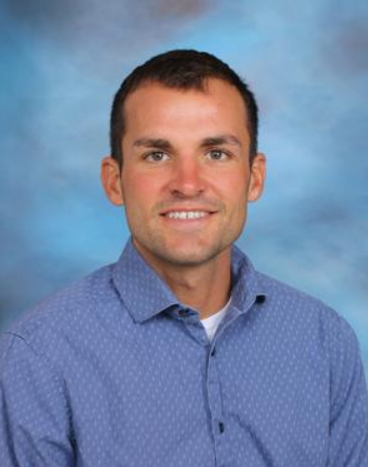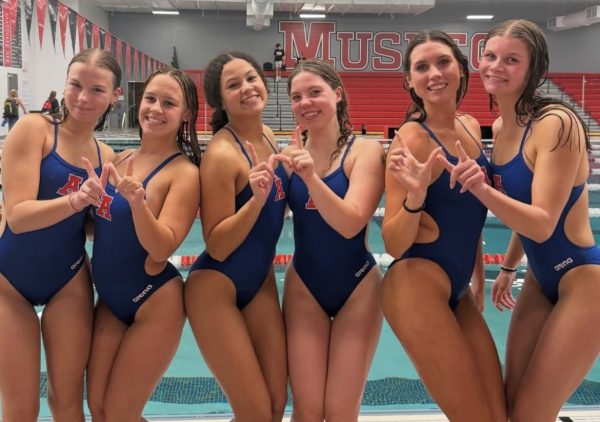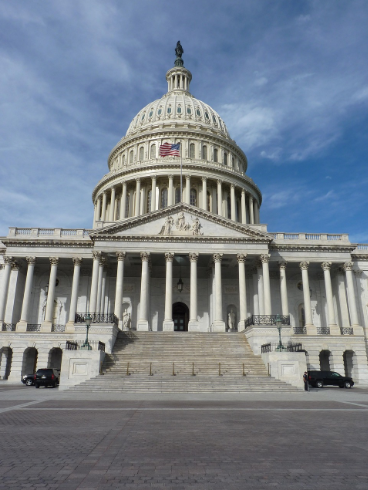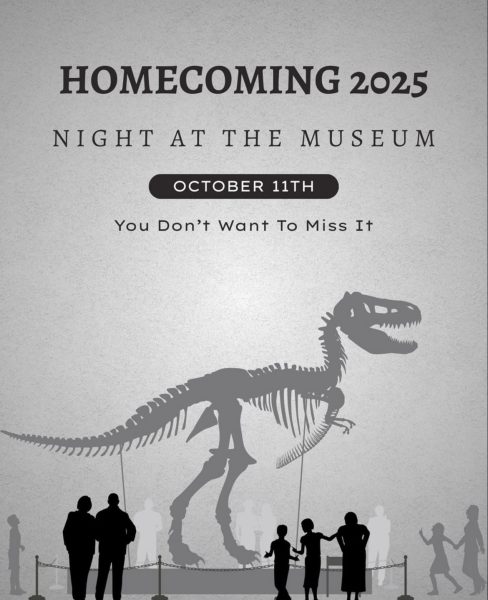Tragic School Shooting in Florida Brings Attention to AHS School Safety
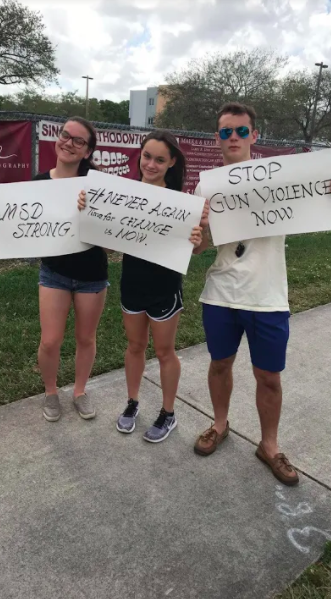
Cooper Brockway and his friends protesting gun rights in Florida (photo taken by friend of Brockway).
On February 14th, 2018, Marjory Stoneman Douglas High School, located in Parkland, Florida, was the victim of a school shooting in which 17 total were killed: 14 students and three faculty, ages ranging from 14 to 49.
At the time of the shooting, I was in the auditorium,” says Stoneman junior, Cooper Brockway. “At first, my friend Elise told me that there was a shooting and I thought she was joking, but then I saw everybody scrambling for safety so at that time I knew it was real. To honor the victims, I’ve been visiting Pine Trails, a local park, where the memorial for all 17 victims is, as well as going to vigils for them and even going to some of the victim’s houses.”
“I think gun violence is something that’s been affecting our country at an increasing rate, and that there should be action taken against it,” says AHS junior Sarah Wood. “I think more thorough background checks should be used when people are purchasing guns. Also I think it’s unnecessary for non-military personnel to own extremely powerful guns like assault rifles. I’m bothered by the lack of effect that gun regulations have. I don’t think banning guns completely is the answer, and I doubt that’d even happen here, but I’m bothered by how our current regulations are doing so little.”
Julie Terkewitz, Patricia Mazzei, and Audra D. S. Burch, of The New York Times in their article, “Suspect confessed to police that he began shooting students ‘in the hallways,’” wrote that three of the ten deadliest mass shootings in modern US history have occurred in the last five months. Besides Parkland, there was also the shooting in Las Vegas, in which 58 people were killed and almost 500 were injured, and the shooting in a Texas church, in which 25 people and an unborn child were killed and 20 others were wounded.
“We do have a very comprehensive safety plan that we update every year,” says AHS resource officer Pete Freyer. “Our crisis plan includes a combination of alerting the building, determining if a lockdown is an appropriate course of action, and informing everybody. What we do today is tell the students and staff exactly what’s going on in the building. If you get good information and you know exactly what’s going on, you can then make a better decision on what might be the proper course of action, whether it’s [to] escape the building, [or] whether it’s remaining locked in your room and fortifying the classroom.”
Freyer says, “I’m in here with a gun on me and a taser, and I do have other equipment that’s in my car. I am here on the grounds so hope to God I would be in the right place at the right time to stop a threat before anyone got hurt. We do our best to keep the doors locked, and do our best to make sure the building is secure at all times. We institute ID tags so that we know that the adults in the building are meant to be there. We have a computer system that checks the background of adults coming into our building to make sure that they’re not on a ‘watch list’ or anything like that. Our best asset is that we have a lot of staff members and students that pay attention. You would be surprised by the amount of information we get from staff members and students everyday about other people making strange comments or someone drawing a picture that was kind of suspicious or disturbing. My students and staff members seem to be really alert and have a very good sense of when they should say things to other people. That’s the thing that’s going to keep us safe here.”
Brockway says, “Going back to school will be hard. We are going to need more time, which we will not get, but the school will get through it together because we all need time to graduate and to build our futures. To prevent this from ever happening again, I think that every student should have to wear ID badge necklaces with their school ID on it to show and prove that you go to that certain school. I’ve brought this up to my principal and he will address it in the administration meeting.”
“You are here to learn, you shouldn’t have to feel the need to defend yourself,” says Freyer.

